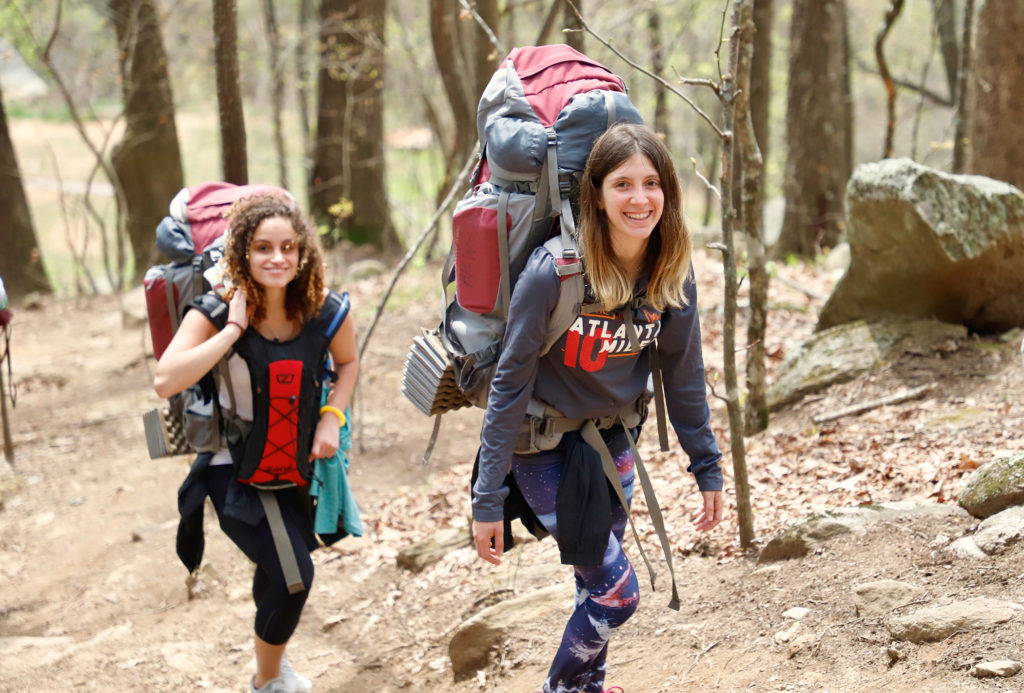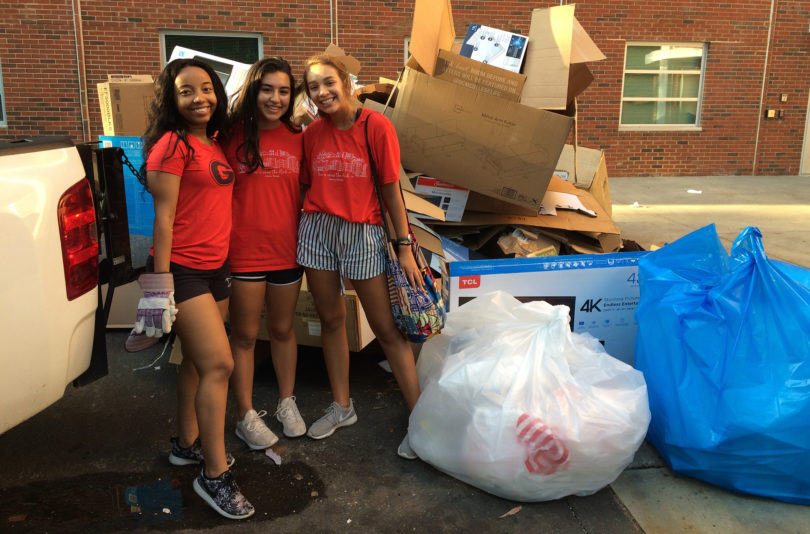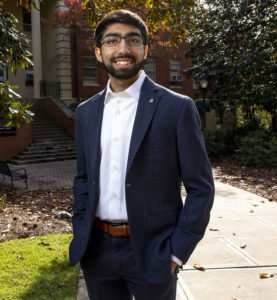Over the years, initiatives to care for the University of Georgia campus environment have equipped students with the essential skills to ensure sustainable well-being happens both at UGA and beyond.
To accomplish this, the Division of Student Affairs offers environmental educational programs and implements sustainable initiatives throughout its departments and programs.
Developing a “land ethic”
UGA Recreational Sports Outdoor Recreation provides trips and clinics that use Leave No Trace Principles and encourages the development of a “land ethic,” a respect for the natural environment. The trips offer students the opportunity to experience the natural world and develop an appreciation for it.
“In Outdoor Recreation, we come to grips with this paradox between the preservation of natural spaces and the use of natural spaces,” said Dave Rector, coordinator for Outdoor Recreation. “We want people to be aware of their impact on the natural world when they are camping and in their everyday life.”
When students become competent in outdoor skills, it prevents them from having an unnecessary impact on a natural space, Rector said.
“We ask ourselves if a certain area is so valuable that it is worth not ever visiting, and if it is still worth visiting, how can we minimize impacts while we are there,” he said. “We do this by using the Leave No Trace principles, which are not rules, but seven principles to minimize impact.”
A few of these principles include traveling on durable surfaces, disposing of waste properly and leaving what is found, according to the organization, Leave No Trace.
“In my experience, a lot of students have found freedom taking these principles as educational tools and reflecting on their everyday lives,” said Rector. “They learn how to live simply.”

Students on Outdoor Recreation camping trips practice Leave No Trace principles. (Submitted photo taken in 2019)
He shared how students on backpacking trips often realize they do not need both a pot and a pan because they learned how to do everything with just a pan on the trip.
“If you are a college student and you grew up not going into the outdoors, you have a conception of what is needed for everyday life that takes more resources than what you need,” he said.
Rector said that Outdoor Recreation teaches students to be OK using fewer resources to maintain comfort, and they develop a land ethic in the process.
Everyday living
University Housing provides sustainability education and infrastructure to more than 8,000 residents.
A coordinated effort in August, called Hunker Down with Housing, organizes and ensures packaging from new futons, mini fridges and appliances are properly recycled during the move-in process, said Christy Tweedy, University Housing’s sustainability coordinator.
“Volunteers separate cardboard, plastic film and Styrofoam,” said Tweedy. “Plastic film and Styrofoam do not go into our mixed recycling stream, but they go to the Center for Hard to Recycle Material.”
Student ambassadors and eco representatives, known as EcoReps, engage in educational efforts and provide guidance to Housing residents.
Haley Swanger served in the Myers Community as an EcoRep by educating residents about the compost tumbler, located outside of Rutherford Hall. This tumbler speeds up the food decomposition process to reduce methane in landfills.
“I have tabled in Myers to teach residents how to compost and the purpose of it by handing out bananas as a tool to explain the issue of methane in landfills,” Swanger explained.
EcoReps learn how to communicate with peers in their halls and use critical thinking skills to reduce environmental impact in their halls, said Tweedy.
Another key initiative to reduce impact is the Green Cup Challenge, which is an energy conservation competition between residence halls during October.
This past year, the highest electricity reduction from baseline was 21 percent.
“We try to give details on how you conserve, and when we increase the education, we find that we conserve more energy,” said Tweedy.
In order to best prepare to educate residents, student leaders tour the local landfill, recycling center and compost location for campus. This understanding of the local waste system helps drive zero waste initiatives, she explained.
“We suggest making residence hall events zero-waste by having students bring their own mugs in exchange for something like a cookie. We also offer zero-waste event kits with reusable dining utensils, plates and cups,” Tweedy said.
The focus on reusing items carries into the move-out process during Dawgs Ditch the Dumpster and Donate, when students donate their futons, shelves and other items to local organizations.
“This past year we were able to prevent roughly 20 roll-off loads of trash, which averages around 50,000 pounds,” said Tweedy.
To be a part of these efforts, Housing annually requests volunteers to assist with move in and move out.
Well-being and environmental health
The University Health Center focuses on reducing environmental toxins. Interested in the intersection between health care and sustainability, Harris Jamal serves as the UHC sustainability intern.
“I discovered that environmental health science is a part of public health and how environmental problems come back and impact health,” said Jamal. “Every environmental issue in some way, shape or form turns back to impact human health.”
Jamal explained how anything the health care industry puts out into the environment may go back in a cyclical nature and hurt the same patients that they have been treating.
“Health care is supposed to be doing no harm, and under the table, there are impacts happening, which is why we prioritize sustainability,” said Jamal.
The University Health Center first aimed to reduce carcinogens in water systems caused by a chemical, triclosan, in soap commonly used in health care facilities.
“It goes into the drain and can react with sunlight, which makes it toxic,” Jamal said. “The reason it is used in health care is because it is a strong antibacterial agent.”
Using CDC and FDA research, Jamal found alternative soap options without triclosan.
“Replacing the soap got the ball rolling on more sustainable ideas, which revolved around waste reduction,” Jamal said. “We added composting bins to the break rooms.”
Jamal conducted a waste audit of the UHC and determined packaging could be easily recycled.
“We learned if we put recycle bins inside exam rooms, they can grab materials off the shelf and have the immediate opportunity to recycle it,” he said.
With the proper permissions, he also assessed biohazardous waste and discovered things that did not have to be there.
“That is a problem because everything in those bags get sent off to be incinerated and produce chemicals in the air,” said Jamal. “The health care industry produces around 8% of dioxin emissions, which is toxic.”
Jamal explained how bio waste bins are often more accessible than trashcans to throw things away. So they’re testing other options for bio waste bin placement and educating staff in what bio waste entails to bring awareness to the issue.
Though Jamal is about to graduate, he said he is excited about what the UHC’s new sustainability committee has in store going forward.









